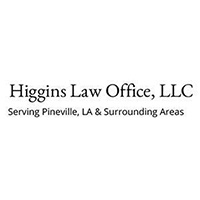Plaucheville White Collar Crime Lawyer, Louisiana
Sponsored Law Firm
-
 x
x

Click For More Info:
-
The Law Offices of Richard L. Cooper, P.A.
848 Brickell Avenue Suite 800 Miami, FL 33131» view mapDWI/DUI, Drug Trafficking, Felony Nationally Ranked Top 40 Under 40
With Richard L. Cooper you can expect a trusted confidant who will work diligently to fully understand your case and determine a road map to help you regain control of your life.
800-756-2781
Not enough matches for Plaucheville White Collar Crime lawyer.
Below are all Plaucheville Criminal lawyers.
George Higgins
✓ VERIFIEDGeorge Lewis Higgins III received his Juris Doctor degree in 1979 from Paul M. Hebert Law Center at Louisiana State University in Baton Rouge. Mr. Hig... (more)
Kathryn Jakuback Burke
✓ VERIFIEDKathryn graduated from LSU’s Paul M. Hebert Law Center in 2017. During law school she was an active participant in Moot Court and Trial Advocacy. Du... (more)
Jacob Guice Longman
✓ VERIFIEDJacob is a 2017 graduate of the Paul M. Hebert Law Center. During law school, he participated in Trial Advocacy and Moot Court, was President of the S... (more)
Ted Williams
FREE CONSULTATION
CONTACT
 Richard L. Cooper Miami, FL
Richard L. Cooper Miami, FL AboutMiami Attorney at Law
AboutMiami Attorney at Law ServicesCriminal Defense
ServicesCriminal Defense



